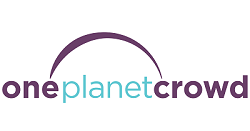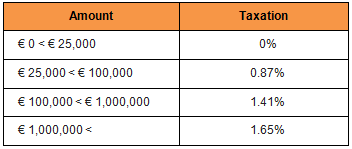This is a guest post by Dutch lawyer Coen Barneveld Binkhuysen (see full bio at the end of the article)
Crowdfunding is growing exponentially in the Netherlands. Although the Dutch market has not yet reached the astronomical levels of the United States and the United Kingdom, many people have heard about the phenomenon and are intrigued by this potential alternative investment opportunity. While the Dutch market speaks a lot about crowdfunding, it is less familiar with the term p2p-lending (it is commonly available though). As this article covers investments in loans, convertible subordinated loans and equity, I will use the general term crowdfunding instead of p2p-lending.
In the first 6 months of 2015, almost 50 million Euro was raised via crowdfunding, which is double the amount raised in 2014. There are over 80 crowdfunding platforms active in the Netherlands, which makes it difficult for potential investors to gain an overview of the viable available investment opportunities. This article provides a general overview of the most important platforms active in the Dutch market. Furthermore, I will discuss some relevant topics in relation to crowdfunding, such as: diversification options, costs, default risks, cash flow, types of investment and the added value of a properly managed crowdfunding platform.
Overview investment options
In general, crowdfunding platforms in the Netherlands offer the option to invest in loans, subordinated convertible loans and equity (besides donations and the purchase of products). Each of these different investment options has benefits and drawbacks in terms of cash flow, risk and the potential upside can vary significantly:
Loans provide a direct cash flow to the investor as loans are usually repaid in monthly instalments. Loans only have a limited potential upside, maximized at the offered interest rate. Due to the monthly repayments, the risk decreases every month. Most crowdfunding platforms determine the interest rate based on the envisaged risk. As far as I am aware, there are no platforms active in the Netherlands that provide the option to “bid” on loans in auctions.
Convertible subordinated loans (also called convertibles) are considered to entail more risk than normal loans as convertibles are subordinated to (normal) loans and other claims. Investors generally expect a higher return in exchange for a higher risk. Instead of offering a higher interest rate, companies issuing convertibles via crowdfunding offer the option to convert these loans into certificates of shares.[1] The option to convert may be restricted by certain conditions such as (i) a specific period in which conversion must take place and/or (ii) the condition that a sophisticated investor invests at least amount “X” during the term of the loan. For an investor it is important to identify any conversion conditions that may apply. If the loan is not converted into certificates of shares during its term, the investor will receive the principal plus interest payments at the end of the term of the loan. These investments might not be interesting for investors looking for a steady cash flow, but they can be interesting for those who want to have a shot at a serious return.
Equity is normally being offered in the form of certificates of shares (equal to the convertibles described above). Again, investing in equity does not create a steady cash flow for the investor. The terms and conditions related to the certificates of shares may (and normally will) restrict the option to sell them. Therefore, investors are expected to wait for the moment the entire company is being sold to an investor, which can take a long time. Investing in equity might only be interesting for investors looking for long-term investments. Then again, these investments do have the largest potential upside as the investor will profit from every increase in value once the company is being sold.
Balancing risks
Each investor takes, or at least should take, the risk of default into account, especially when investing in high-risk companies such as start-ups. Business cases of start-ups have not yet been properly tested and most do not, or hardly have, any financial buffers. Should the financed company go bankrupt, practice shows that only in rare cases (only part of) the loan can be recovered. Normally, preferred creditors such as banks and the tax authorities will receive the benefit of all assets left in the company and there is nothing left for others. Some platforms try to reduce the risk by requesting a personal guarantee of the entrepreneur, but this is of little use if the person does not have any assets.
The actual difference between investments in loans, convertibles and equity from a risk perspective is small. Investors having certificates of shares have a larger potential upside than the holders of loans. One could say that investors almost bear the same risk, but with different potential upsides. In my opinion the most important reasons to choose for normal loans are the fixed term and monthly repayments. If you are not in a hurry to make a profit and are going for the highest potential return, convertibles and equity might be a more interesting option.
Overview largest platforms in the Netherlands
After selecting the preferred investment instrument, it is important to select one or more of the available crowdfunding platforms. Without aiming to be complete, I list the largest and most active platforms active in the Netherlands below:
 Geldvoorelkaar.nl is the national market leader and funded over 825 projects, with a total sum of over 66,000,000 Euro. The platform focusses on p2p-lending and only provides investors the opportunity to invest in loans. Interest rates range from 4% to 9% depending on the risk score determined by Geldvoorelkaar.nl. All loans are being repaid in monthly instalments as of the first month. By investing in projects via this platform, it is fairly easy to generate a decent cash flow. Up to now, 3.5% of my investments on the platform have defaulted. As the principal of one of the defaulted projects was almost fully paid back, my average ROI still accounts for about 6.5% per year. The other defaulted project was probably a case of bankruptcy fraud, which I expect to happen more often in the future. The platform opens several dozen new projects every week, which creates sufficient opportunities to diversify your portfolio and reinvest your money. An investor must pay a fee equal to 0.3% * loan duration (in years) * invested amount (which amount will be refunded if the project defaults).
Geldvoorelkaar.nl is the national market leader and funded over 825 projects, with a total sum of over 66,000,000 Euro. The platform focusses on p2p-lending and only provides investors the opportunity to invest in loans. Interest rates range from 4% to 9% depending on the risk score determined by Geldvoorelkaar.nl. All loans are being repaid in monthly instalments as of the first month. By investing in projects via this platform, it is fairly easy to generate a decent cash flow. Up to now, 3.5% of my investments on the platform have defaulted. As the principal of one of the defaulted projects was almost fully paid back, my average ROI still accounts for about 6.5% per year. The other defaulted project was probably a case of bankruptcy fraud, which I expect to happen more often in the future. The platform opens several dozen new projects every week, which creates sufficient opportunities to diversify your portfolio and reinvest your money. An investor must pay a fee equal to 0.3% * loan duration (in years) * invested amount (which amount will be refunded if the project defaults).
 Oneplanetcrowd claims to be Europe’s leading sustainable crowdfunding platform. Since launching in 2012 it raised over € 6 million in funding for more than 100 projects. Oneplanetcrowd operates in Germany and the Netherlands and is planning to open in other European countries soon. It provides investors the option to invest in loans and convertibles (apart from donations and presale options) and offers some of the most interesting investment opportunities, such as Snappcar and Wakawaka Power. Various projects offer the opportunity to co-invest with sophisticated venture capital firms as these firms invest simultaneously with the crowdfunding campaign. In my opinion, this is a huge advantage for investors as VCs tend to do a thorough due diligence before choosing to invest. The platform only allows companies with a sustainable philosophy to start a campaign on the platform. Their goal is to provide high quality investments with a decent return to investors. Although this is a good niche market, the strategy makes diversification opportunities fairly difficult. Investors do not pay a fee on Oneplanetcrowd.
Oneplanetcrowd claims to be Europe’s leading sustainable crowdfunding platform. Since launching in 2012 it raised over € 6 million in funding for more than 100 projects. Oneplanetcrowd operates in Germany and the Netherlands and is planning to open in other European countries soon. It provides investors the option to invest in loans and convertibles (apart from donations and presale options) and offers some of the most interesting investment opportunities, such as Snappcar and Wakawaka Power. Various projects offer the opportunity to co-invest with sophisticated venture capital firms as these firms invest simultaneously with the crowdfunding campaign. In my opinion, this is a huge advantage for investors as VCs tend to do a thorough due diligence before choosing to invest. The platform only allows companies with a sustainable philosophy to start a campaign on the platform. Their goal is to provide high quality investments with a decent return to investors. Although this is a good niche market, the strategy makes diversification opportunities fairly difficult. Investors do not pay a fee on Oneplanetcrowd.
KapitaalOpMaat and Collin Crowdfund are some of the main competitors of Geldvoorelkaar.nl as these platforms focus solely on loans with loan periods ranging from 6 up to 120 months and interest rates of 5.5% up to 9% depending on the calculated risk. Almost 6.5 million Euro and 13 million Euro have been funded via these platforms, respectively. Investors on KapitaalOpMaat pay a one-time transaction fee of 0.9% and a yearly fee of 0.85% on Collin Crowdfunding. Both platforms provide discounts to investors investing more than certain thresholds.
Bondora is a European platform offering the opportunity to invest in loans on a European level. Although this is by far the most sophisticated (international) platform available to Dutch investors, its presence is fairly unknown to most Dutch investors. Already more than 35 million Euro has been financed via Bondora. Investors are allowed to choose their own investments on the primary market, but most loans are filled in advance by a bot. Therefore, it will be necessary to invest automatically via the provided bot in order to obtain sufficient loans. This enables the investor to invest in literally thousands of loans differing in purpose, country and risk. All loans are repaid in monthly instalments on a virtual account. Bondora also offers the option to purchase/sell investments to other investors on its secondary market (with a premium/discount) against a fee of 1.5%. Investors do not pay any fees on the primary market. Although Bondora claims an average ROI of 18.75%, many investors complain about the large number of defaults. As the minimum investment is only 5 Euro, the threshold is low.
Symbid is one of the established Dutch crowdfunding platforms and focuses on equity (certificates of shares) and loans. Although Symbid seems to suggest that already more than 300 million Euro has been invested via their crowdfunding platform, the actual amount funded by the crowd is closer to 6 million Euro. One of the advantages of Symbid is that it offers the option to sell your equity to other investors on the platform.
Financial Information
One thing most platforms have in common is that they do not provide much detailed financial information on the propositions. Investors are expected to base their investments decisions on the due diligence and analysis carried out by the relevant platform. Every platform uses different procedures, which are not always transparent. Geldvoorelkaar.nl estimates the available cash flow and uses a third party (Graydon) to analyse the risk of the project. Oneplanetcrowd requests financial information (including forecasts) of the company, has face-to-face discussions with the entrepreneur and requests an analyst of the related venture capital firm to review the financial data. Other platforms have slightly different methods. The valuation of a project could be completely different on two different platforms. Such valuation has a huge impact on the potential ROI of an investor as the percentage of equity given for a certain amount of money fully depends on the valuation.
Bondora provides by far the most valuable (financial) information on the potential investments (being loans). Furthermore, this information can also be downloaded and analysed. This creates a major advantage for more sophisticated investors. Furthermore, Bondora is the only platform that actually provides information on (the percentage of) defaulted loans and its procedure and success of retrieval. Other platforms try to keep defaults quiet; probably in order to avoid scaring off potential investors. This seriously complicates estimating the actual ROI, as the risk is unknown. As all platforms receive a percentage of the amount successfully funded, there is a large incentive to publish as much projects as possible and to be overoptimistic about the propositions. It will heavily depend on the management how it balances the investor’s risk and the platform’s profit margins. I would expect that if a platform is confident about its checks and balances, it would explicitly publish its procedures and results on its website. As an investor, the total amount funded is irrelevant to me. In the end, I am looking for a decent return on investment.
Dutch taxes on crowdfunding investments
Although it goes beyond the scope of this article to provide a complete overview of the tax consequences of (privately) investing in crowdfunding, it is important to note that the Dutch tax authorities levy taxes on the profits earned on every Dutch citizen’s private capital (above a threshold of +/- € 21,000) relating to the so-called box 3. Capital is being defined as the difference between the investor’s assets minus his liabilities, which is being determined every year on 1 January. The assumed income is set at 4%; irrespective of the fact whether a huge loss or profit was made. The tax authorities levy a tax of 30% on these profits (effectively being 1.2% of the capital). Especially during years in which the interest rates on saving accounts is low, investors are eager to go for riskier investments in order to prevent their capital from declining. Unfortunately losses cannot be deducted. As per 1 January 2017, the Dutch government is planning to introduce some amendments, after which the following taxes will be levied on a private person’s capital:
Conclusion
My prediction would be that only a few platforms will survive. Whether a platform is interesting from an investor’s perspective will depend on factors such as ROI, diversification options, default risks, cash flow, available types of investment and the platform’s management. With exception of Bondora, crowdfunding platforms are hesitant to provide detailed financial information on the projects and they tend to avoid communicating on any defaults (whenever possible) or the management thereof. Exactly these factors are relevant for an investor’s ROI and need to be published in order for an investor to make a well-substantiated investment decision. In my opinion, platforms either have to choose to become more investor-oriented or otherwise the (international) competition will soon pick up this message and start taking over this profitable market.
 Coen Barneveld Binkhuysen is a Commercial / Technology lawyer at Osborne Clarke and is based in Amsterdam. He specialises in information technology and commercial contracting and is a legal expert in crowdfunding. Coen advises multiple national and international crowdfunding platforms on both business decisions and legal matters.
Coen Barneveld Binkhuysen is a Commercial / Technology lawyer at Osborne Clarke and is based in Amsterdam. He specialises in information technology and commercial contracting and is a legal expert in crowdfunding. Coen advises multiple national and international crowdfunding platforms on both business decisions and legal matters.
Feel free to contact him:
https://www.linkedin.com/in/barneveld
[1] Certificates of shares are Dutch legal instruments that are typically used in the Netherlands to grant the investor the economic benefit of a share, without having the legal ownership/influence.


